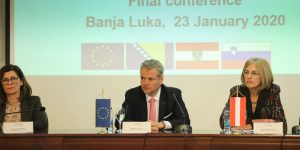Brussels, 7 March 2019
The Council unanimously decided to reject a draft list put forward by the Commission of 23 “high-risk third countries” in the area of money laundering and terrorist financing.
In a statement, the Council justifies its decision on the grounds that it “cannot support the current proposal that was not established in a transparent and resilient process that actively incentivises affected countries to take decisive action while also respecting their right to be heard”.
The Commission will now have to propose a new draft list of high-risk third countries that will address member states’ concerns.
The 5th directive on anti-money laundering and terrorist financing sets out an obligation to identify third country jurisdictions which have strategic deficiencies in their anti-money laundering and terrorist financing regimes that pose significant threats to the financial system of the EU.
The objective of the listing is to protect the EU financial system from risks of money laundering and terrorist financing coming from third countries. On this basis, banks and other financial institutions are required to be more vigilant and to carry out extra checks in the context of transactions involving high-risk third countries.
Background on process
The Commission has the power to adopt a delegated act setting out a list of high-risk third countries. This list is drawn up on the basis of relevant evaluations, assessments or reports drawn up by international organisations and standard setters, such as the Financial Action Task Force.
The delegated act can enter into force only if no objection has been expressed either by the European Parliament or by the Council within a period of one month of the notification of the act.
In order to object, the Council is required to reach a reinforced qualified majority, corresponding to 72% of member states and 65% of the EU’s population.



